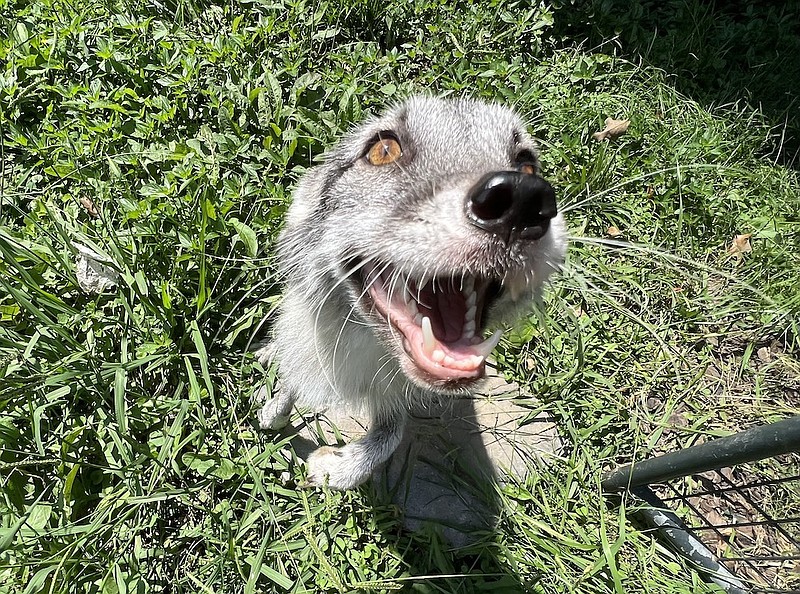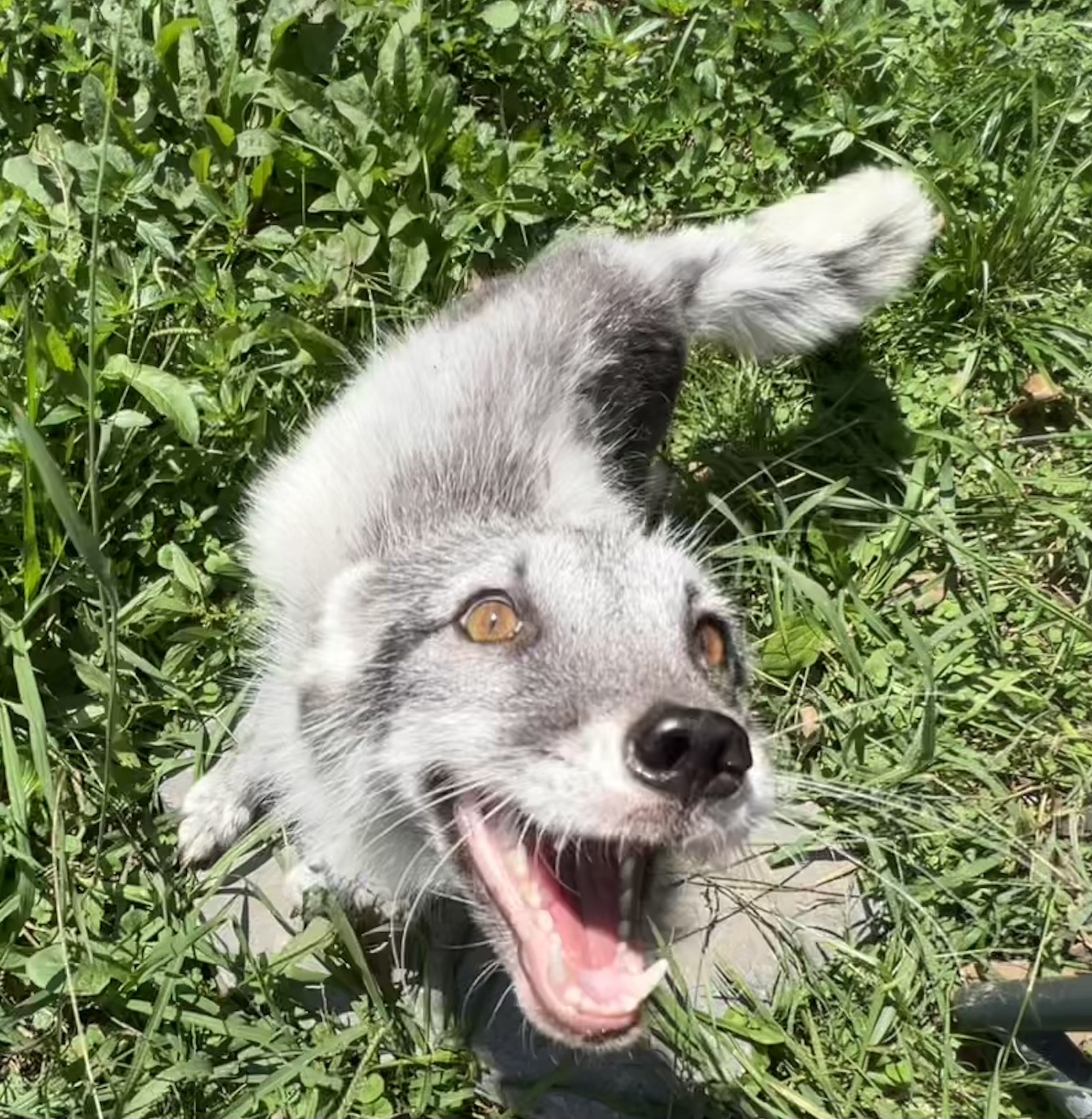A Chattanooga wildlife rescue organization last week received a call from a Soddy-Daisy woman who discovered what she believed was a silver fox pawing at her back door, trying to get inside.
"Obviously, that's not a normal thing for a fox to do," said Juniper Russo, executive director of the group, known as For Fox Sake.
Russo said the animal -- a nonnative arctic fox -- was likely obtained by someone in the area as a pet.
The fox, which rehabilitators called Cooper, didn't have a microchip, so Russo posted photos of the fox on social media to see if she could track down his legal owner.
The post eventually reached Cooper's most recent owner, who said the fox was acquired from a friend who was neglecting the animal.
Cooper's temporary keeper had constructed an enclosure from chicken wire to use as a short-term home for the fox, who escaped and made his way to the yard of the neighbor, who contacted For Fox Sake.
The temporary keeper agreed with Russo that moving Cooper to a sanctuary was in the fox's best interest, and Russo was able to find a long-term home for Cooper at Exotic Pet Wonderland, a Knoxville wildlife facility.
"We work pretty closely together, because we do get calls pretty often about exotic pets, and there's a lot of overlap between what the two of us do," Russo said by phone of Exotic Pet Wonderland.
(READ MORE: Chattanooga area wildlife rehabilitators help care for animals in need)
Any wildlife bred in captivity -- even if it's native to the area -- legally cannot be rehabilitated and released into the wild in Tennessee, so Russo often turns to Exotic Pet Wonderland when she is looking for long-term homes for wildlife bred in captivity, she said.
It's not uncommon for people who purchase a fox as a pet to later decide they are incapable of caring for the animal, and Exotic Pet Wonderland founder Linsey Hembree said in a phone interview she took in seven such foxes as a private owner before she started the sanctuary in 2019.
"The need was too great to just be doing it as an individual," said Hembree, who now has more than 30 foxes living at the sanctuary. "There's more people getting these animals every single year, and most of the time, they do not know what they are doing with them. Every year, there's more and more and more surrendered."
Russo said For Fox Sake also gets about 30 calls a year from people who "kidnapped" wild baby foxes to keep as pets before realizing foxes are more difficult to care for than they thought.
Animals that were not bred in captivity can continue to live at For Fox Sake and serve as education animals, be placed in a zoo, or be rehabilitated and released into the wild if they are still very young, she said.
Most of the foxes at Exotic Pet Wonderland are arctic foxes, which Hembree said are legal to possess in Tennessee without a permit. She said native species, including red and gray foxes, require a permit, and the permit is easy to obtain.
She said she's working with officials from the Tennessee Wildlife Resources Agency to find ways to reduce the growing number of pet foxes that need new homes once their owners realize they lack the resources necessary to care for them.
"We've always said that almost all foxes that people buy in the spring, which is when they're born, will not see the next spring with their owner," said Hembree, adding the average age of foxes that come to live at the sanctuary after being surrendered by their owners is 212 days. "It is a huge growing issue for an animal that is a lot more difficult to care for than just a dog or a cat, or even a smaller exotic. There's a lot that goes into their care."
Russo said what overwhelms most fox owners is the way the animals smell.
"Both arctic foxes and red foxes stink to high heaven, and there's no possible way to de-scent them," she said.
Foxes have glands that produce a strong musky scent, Russo said, and their urine smells very musky as well.
"When they're kept indoors, they tend to mark pretty much everything that they think is theirs, including their owner's bed and carpet," she said.
Foxes can become more aggressive when they reach puberty and often aren't as cuddly as their owners would like them to be, Russo said.
"It's through no fault of their own," she said. "It's just that this is a wild animal that isn't really equipped to live in a human home and be treated like a cat or dog."
Both For Fox Sake and Exotic Pet Wonderland are nonprofit organizations. For more information visit forfoxsakewildlife.com or exoticpetwonderland.org.
Contact Emily Crisman at ecrisman@timesfreepress.com or 423-757-6508.

